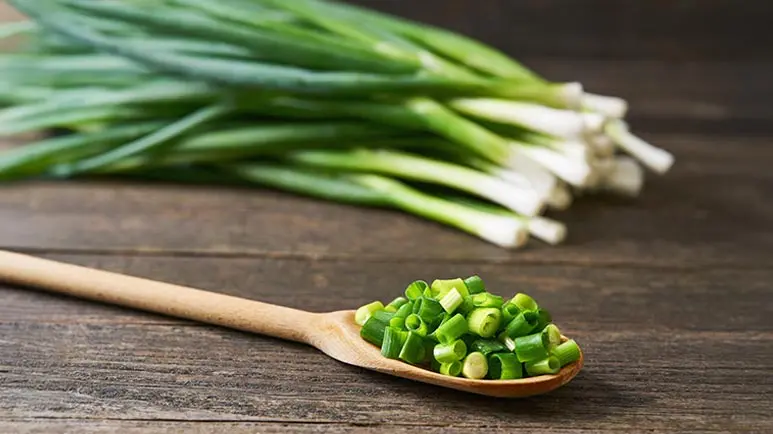Chives: How Can This Popular Herb Harm Your Pet?
While it may be a fixture in kitchens, this green veggie should not be in your pet's food bowl because it can potentially harm their health. Learn the signs of its toxicity here.

STORY AT-A-GLANCE
- Chives contain the same toxic compounds found in onions, which are known to cause anemia, digestive issues and other toxicity symptoms in pets
- Symptoms of chives toxicity to watch out for include jaundice, weakness, anemia and pale mucous membranes. Bring your pet to the veterinarian immediately if you notice any of these symptoms
- If you’re growing or storing chives at home, keep them safely stored away from your pet’s curious paws
Editor's Note: This article is a reprint. It was originally published January 11, 2024.
Chives (Allium schoenoprasum) are universally beloved for their versatility, lending a milder onion flavor to countless dishes. Eggs Benedict, baked potatoes, soups and roasted meats are just some of the myriad culinary applications of chives in human food cuisine.1 While these little green garnishes can do wonders for your meals, the same can’t be said for your pet’s food.
Research suggests chives can be harmful to pets when consumed because of their biological similarities to onions. Read on to learn more about chives and how you can spot the signs of chives toxicity in pets here.
Chives Fun Fact

Chives got its name from the ancient French word “cive,” which was the ancient French word for chives. Interestingly, “cive” was derived from the ancient Latin word “cepa,” which is the catch-all term for alliums in ancient Rome.2
What Makes Chives Toxic to Pets?
Chives belong to the allium family of vegetables. They contain thiosulfates and disulfides, the same compounds that make onions and leeks toxic to pets. These compounds contribute to chives’ toxicity in animals by interfering with the glucose-6-phosphate dehydrogenase enzyme.
This creates reactive oxygen species and lactic acid buildup, as well as damaged hemoglobin, leading to Heinz body hemolytic anemia, a very specific type of severe anemia in dogs, cats and horses that’s associated with excessive thiosulfate consumption.3
Signs of Allium Toxicity in Pets
“Due to their toxicity to pets, keep chives, onions and leeks safely stored away from your pet’s prying paws.”
According to an article published in the Encyclopedia of Toxicology, consumption of chives, as well as onions and leeks, can cause the following symptoms in animals:4
- Gastrointestinal upset
- Pale mucous membranes
- Kidney failure
- Weakness
- Recumbency (inability to get up)
- Anemia
- Jaundice
Symptoms of toxicity may not appear immediately and could take several days before they become apparent.5 If you suspect that your pet has accidentally eaten chives, call a licensed veterinary practitioner right away for immediate advice and take your pet to the veterinarian for emergency care.
Did You Know?

Chives are native to Europe and Asia. While chives certainly grow in America, it’s debated whether they’re also native or brought there by other means.6
Are Chives a Sustainable Crop?
While chives are a no-go for your pet, that doesn't mean you should miss out on them. Research suggests that phytochemicals in the Chinese variety may help promote muscle growth in humans.7 Furthermore, chives are easy to grow at home, making them an environmentally friendly and sustainable crop that can add a new layer of flavor to your favorite foods.8
If you’re growing or planning to grow your own chives, make sure they’re safely stored away from your pet so they don’t accidentally eat them, especially if you’re growing them indoors. Store chives in a container or wrap them in a towel to discourage curious paws away from this veggie.9 Again, preventing them from accessing chives in the first place is the best way to keep them safe, while allowing you to enjoy this veggie.
Top Producers of Alliums Around the World

China is the world’s top producer of alliums, which include onions, chives, garlic and Welsh onion, producing 20,507,759 metric tons annually. India comes in at second place, with a production of 13,372,100 metric tons. Third place belongs to the United States, with just 3,320,870 metric tons of harvest.10

Garlic: The Only Allium Safe and Beneficial for Your Pet
While onions, leeks and chives can potentially harm your pet’s health, garlic is on the other end of the spectrum. This white bulb gets a bad reputation in vet medicine for being a member of the allium family, but it’s actually safe for pets because it contains significantly lower amounts of thiosulfates than its allium relatives.11 Research also shows that allicin, the primary phytochemical in garlic, may benefit pet health in several ways, such as by helping boost immune function and lowering the risk of cardiovascular disease.12
For best results, give your pet fresh garlic, not garlic pills or powders. This is because chopping and crushing fresh garlic activates the production of allicin. Garlic pills or powder, particularly those made for humans, may also contain higher doses of compounds than appropriate for your pet. To incorporate garlic into your pet’s diet, simply add 1/2 clove of freshly chopped garlic per 15 pounds of your dog’s body weight to their food.
Sources and References
- 1 Specialty Produce, “Chives”
- 2 BON APPÉTIT, “On the Etymology of the Word Chives”
- 3,4 Encyclopedia of Toxicology (Third Edition), 2014, “Veterinary Toxicology”
- 5 Pet Poison Helpline, Chives
- 6 Wisconsin Horticulture, “Chives, Allium schoenoprasum”
- 7 Int J Mol Sci. 2021 Mar; 22(5): 2296, Abstract
- 8,9 FoodPrint, “Chives”
- 10 World Atlas, “The Top Onion-Producing Countries in the World”
- 11 Prostaglandins Leukot Essent Fatty Acids. 2004 Jan;70(1):77-83
- 12 Prostaglandins, Leukotrienes and Essential Fatty Acids. Volume 70, Issue 1, January 2004, Pages 77-83











